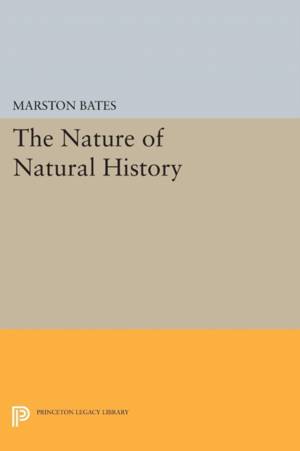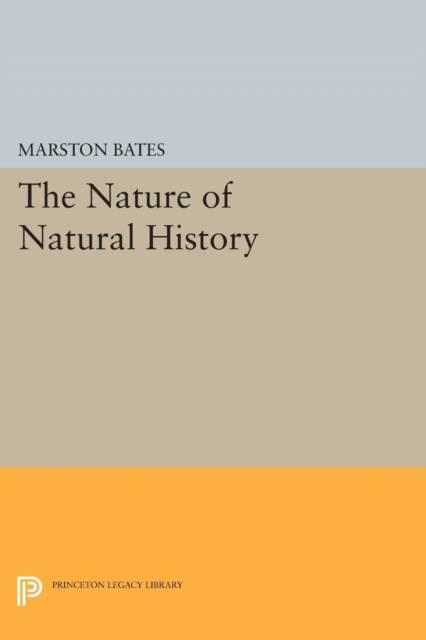
- Afhalen na 1 uur in een winkel met voorraad
- Gratis thuislevering in België vanaf € 30
- Ruim aanbod met 7 miljoen producten
- Afhalen na 1 uur in een winkel met voorraad
- Gratis thuislevering in België vanaf € 30
- Ruim aanbod met 7 miljoen producten
Omschrijving
This classic work is an exploration of what natural history is, and a sustained effort to see how it relates to other areas of biology. Marston Bates did not attempt to overwhelm his audience with facts or overinterpret those he did use, and, perhaps for this reason, The Nature of Natural History is a timeless work. The author's genuine interest in the tropics has a very current feeling, and the first ten or fifteen chapters of the work have a style that is parallel to that of David Attenborough's verbal presentations of nature. From the book: "I have already made several remarks about the connection between parasitism and degeneracy. I suspect this is a matter of point of view. We are predatory animals ourselves, and consequently admire the characteristics of predationagility, speed, cunning, self-reliance. We feel a certain kinship with the lion, and regard the liver fluke with horror. If a sheep were given the choice, though, it might prefer to be debilitated by liver flukes rather than killed by a lion."
Originally published in 1990. The Princeton Legacy Library uses the latest print-on-demand technology to again make available previously out-of-print books from the distinguished backlist of Princeton University Press. These editions preserve the original texts of these important books while presenting them in durable paperback and hardcover editions. The goal of the Princeton Legacy Library is to vastly increase access to the rich scholarly heritage found in the thousands of books published by Princeton University Press since its founding in 1905.Specificaties
Betrokkenen
- Auteur(s):
- Uitgeverij:
Inhoud
- Aantal bladzijden:
- 332
- Taal:
- Engels
- Reeks:
- Reeksnummer:
- nr. 1138
Eigenschappen
- Productcode (EAN):
- 9780691608013
- Verschijningsdatum:
- 14/07/2014
- Uitvoering:
- Paperback
- Formaat:
- Trade paperback (VS)
- Afmetingen:
- 156 mm x 234 mm
- Gewicht:
- 467 g

Alleen bij Standaard Boekhandel
Beoordelingen
We publiceren alleen reviews die voldoen aan de voorwaarden voor reviews. Bekijk onze voorwaarden voor reviews.











